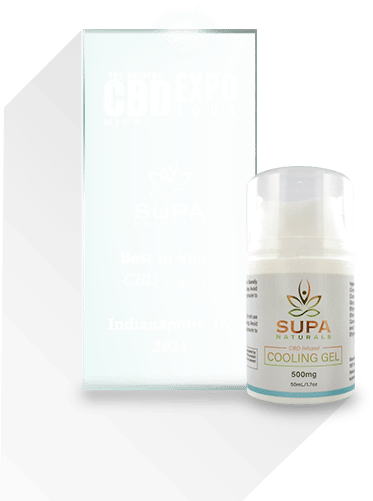Blog
- Filter by
- Categories
- Tags
- Authors
- Show all
August 27, 2021
What do you get when you mix one of the world’s most beloved dessert flavors with one of its most calming natural substances?
When people use the term superfood, they’re usually trying to sell you a supplement or a snack with highly marketable benefits that you will barely feel.
However, when you consume CBD chocolate edibles, you can enjoy their effects almost immediately, sometimes even before the sweetness leaves your tongue. CBD edibles are scientifically proven to reduce neuropathic pain, muscle and joint inflammation, and many symptoms of depression. Now, that’s a superfood.
What is CBD, and How is it Related to Chocolate?
Even if you’re new to the world of hemp-sourced supplements and ingredients, the chances are small that this is your first time hearing about substances like CBD and THC. The world is shifting away from harmful dogmas about hemp and marijuana, and innumerable scientists and pharmaceutical professionals are now studying their benefits to the human body. Today, it will not be hard to find physicians and mental health professionals recommending CBD and THC compounds as part of natural treatment regimens that reduce anxiety, muscle pain, and sleep disorders. CBD is one of the two most prominent substances that pharmacologists can extract from the Cannabis Indica and Sativa plants. Contrary to popular belief, these plants are not all intoxicating and mind-bending. They contain numerous compounds that science is proving to be beneficial to the human body. CBD is short for cannabidiol, and its sister substance is tetrahydrocannabinol or THC. THC is the source of marijuana’s longstanding reputation.CBD and Chocolate
CBD and chocolate both come from plants that people traditionally use to mass-produce another product. They both stimulate the glycine and serotonin receptors in the brain, producing the serotonin neurotransmitter. Ironically, chocolate manufacturers are fond of overloading their products with sugars, fats, and artificial flavors, leading more people to become addicted to sugar than to illegal drugs. CBD and chocolate are healthy foods as long as you consume them in moderation. Thousands of people across the United States enjoy CBD gummy bears, chocolates, and pastries while reporting better health outcomes. You can use our chef-approved recipes down below to help ease depression, opioid withdrawal and addiction, epilepsy, glaucoma, and many other health issues.Do you like it?
August 20, 2021
Does Quitting CBD Cause Withdrawals?
As you can assume, many people are using CBD to help with their physical and mental health issues. However, they wonder what happens after they stop consuming cannabidiol. Anti-depressants, painkillers, and other medications may cause withdrawal symptoms after you stop taking them. They modify your brain chemistry and function, and quitting them can cause your body to react. While CBD impacts the endocannabinoid system, it doesn't have the same after-effect as anti-depressants and painkillers. Medical experts and researchers have been analyzing cannabidiol, its efficacy, and safety. According to the latest studies, there are specific side effects from consuming CBD, but experts spotted no adverse effects after stopping with consumption. They have discovered that CBD can relieve withdrawal symptoms from other medications. Cannabidiol can help with withdrawal symptoms from cigarettes, morphine, and heavy THC use. Until now, there is no specific answer to why CBD doesn't cause withdrawals after you stop consuming it, but it may be because of how different cannabidiol is from anti-depressants, painkillers, and other drugs.What Happens to Your Body When You Stop CBD Consumption?
Unlike many remedies and pharmaceuticals, cannabidiol doesn't make you dependent, so it doesn't pose any abuse risks. According to the World Health Organization, CBD is a safe alternative for many medications, including painkillers. People also don't build a tolerance to CBD as you might do with other drugs. Although these differences don't explain why CBD doesn't offer withdrawals, it does sum up how different cannabidiol is from other pharmaceuticals. What might happen once you stop consuming CBD is that symptoms you were trying to cure or relieve may come back. However, unlike opiates and other medications, the resurfacing of your old symptoms (pain, inflammation, or sickness) shouldn't feel as intense as before.Do you like it?
July 15, 2021
As topical and edible cannabis products gain in popularity, manufacturers are continually looking to improve their CBD extraction processes to yield high-quality products for consumers.
Various methods exist for cannabis extraction, from the simple olive oil extraction method at-home cannabis enthusiasts regularly use to hydrocarbon and chemical solvent extraction methods used in many processing plants.
However, the CO2 extraction method used for CBD, specifically supercritical CO2 extraction, seems to trump them all, yielding high-quality and pure cannabis products every time. Let’s explore why that is and look at the process in detail.
What Is CO2 Extraction?
Carbon dioxide (CO2) is a versatile solvent when heated and pressurized, making it ideal for extracting and isolating active compounds and oils from plants. In the cannabis industry, this safe, reliable extraction method isolates active compounds like cannabinoids and aromatic terpenes from hemp without destroying their potency. Some manufacturers still use other popular extraction methods as well, namely:- Olive oil extraction
- Solvent extraction
- Steam distillation
Do you like it?
June 25, 2021
CBD is gaining popularity every day, and it’s enjoying a surge of product lines from the thriving cannabis industry. However, CBD is not cannabis. CBD is an oil that can be blended to have very little THC or no THC at all. This substance can change lives, and many who deal with chronic pain have purportedly been able to manage their symptoms.
At the same time, using CBD at work is either frowned upon, against corporate policy, or outright illegal. While you may have discovered CBD and want to ensure your health and wellness, it’s necessary to look at the big picture so that you don’t get caught in the web of issues employees have encountered over the past few years.
Problems at Work
For some jobs, drug testing is normal. A recent story featuring a bus driver from Utah illustrates one possible outcome of using CBD on the job. The driver in question, one Jeanette Hayes from Salt Lake County, was terminated over her use of CBD oil. Yes, CBD oil has very little or no THC, but it could trigger a positive drug test. Failing a drug test as a bus driver leads to termination in most cases. Jeanette was told to either resign or be fired. This situation repeats itself every day across America as well-meaning people use CBD as an alternative to traditional medicine, not thinking for a second that they could lose their jobs while taking a substance that is not intoxicating and entirely legal.But You’re a Good Employee
You may be a wonderful employee, but corporations think in black and white terms. They see dollar signs, and they have policies they expect to be followed at all times. If you are a good employee, you could lose your job even though you have an otherwise spotless record. You cannot assume that your employer will give you a break. Companies both big and small are often afraid of facing a lawsuit because it allowed an employee to use a badly perceived substance that may have led to a secondary issue. Corporations may not have updated their policies, or they simply do not know how to move forward. Federal law enforcement officials are losing their jobs or facing disciplinary action for using CBD but testing positive for THC. Federal employees often work in situations for which they cannot be impaired at all, and it is easy to see why a drug test would be mandatory. At the same time, someone with a desk job may have a bit more leeway when it comes to remaining laser-focused throughout the day. This dichotomy points to the issues faced by both employers and employees when addressing CBD. There is no way for tests to differentiate between the THC found in CBD oil and the THC found in marijuana or other cannabis products. Additionally, it is nearly impossible for employees to wage a legal battle against their employers when they must work to survive.Do you like it?
June 11, 2021
There are various ways to differentiate between hemp and CBD oil. For starters, while hemp oil is made from the plant’s stalk, CBD oil is mainly derived from the plant’s flowers and leaves. This is because the leaves and flowers have the most cannabidiol content.
On top of that, the FDA does not view CBD and hemp oil the same. While the FDA has approved the sale and purchase of hemp oil almost everywhere, CBD oils are only legal if they contain a THC content of less than 0.3%.
Another difference between the two is that, while research is still in its infancy, CBD oil has been shown to have a lot more potential benefits than hemp oil.
What Are the Benefits of Hemp Oil?
While it is still early days, hemp oil might have a few promising benefits. For instance, according to research, hemp oil can impact the activity in the brain’s limbic system, which is responsible for your fight or flight response. One study found that the product significantly calmed public speaking-induced stress.What Are the Benefits of CBD Oil?
Early research points towards several promising health benefits of CBD. The following are some of the ways CBD oil might benefit a user’s health.Natural Pain Relief
Conventional drugs can help relieve pain, inflammation, and stiffness, however, some users might be prone to developing addictions or experiencing severe side effects. Fortunately, there is growing evidence that CBD can provide a natural solution to those seeking treatment for inflammation and chronic pain. For instance, one study showed that when CBD is used as an ointment, it can significantly reduce scarring and inflammatory skin disease.Epilepsy
This is perhaps the most well-known health benefit of CBD. Today, many people are using Epidiolex, a purified form of CBD, to treat epilepsy. The FDA has approved the drug to treat Dravet and Lennox-Gastaut syndromes. These conditions are rare forms of epilepsy that involve seizures that are difficult to control with other forms of medications. Thanks to CBD, patients can prevent seizures without experiencing the sedating side effects of certain synthetic drugs.Neurological Symptoms
Certain research suggests that CBD can also treat complications resulting from epilepsy like neuronal injury, neurodegeneration, and psychiatric diseases. For instance, there was a study that showed CBD could provide safe and effective solutions for people with schizophrenia. There have also been several studies looking into the effect CBD has on Alzheimer's disease. For example, one rodent study showed that CBD could help people retain their ability to recognize familiar faces. However, more research is still being carried out.Do you like it?
May 25, 2021
CBD oil is growing in popularity, but what about its counterpart, CBG (cannabigerol)? While you will not find nearly as many human trials about CBG as […]
Do you like it?
April 27, 2021
It wasn’t too long ago that CBD oil and other marijuana products were considered unsafe for human consumption. While those misconceptions still exist today, in modern times, the physical and mental health benefits of CBD products are far more widely known. They’ve had positive effects on pain relief, anxiety, and depression, with studies showing further benefits for cancer and epilepsy symptoms.
However, while CBD is generally safe for us, what about our pets? A recent trend in the pet health market is owners giving pets cannabis supplements to relieve symptoms similar to what you’d find in humans. While CBD oil is an unorthodox treatment method for our pets, we still want the best for them to live as healthy a life as possible.
It’s understandable if you’re still on the fence, however. While some have given CBD oil to their pets with few ill effects, it’s still a new area of study. The idea of their pets ingesting the main ingredient in marijuana can naturally put people off. Below, we provide you with all the information you need to make an informed decision on whether CBD oil is right for your pet.
What Is CBD?
First, we’ll give you a quick rundown on the exact nature of CBD. Short for Cannabidiol, it’s one of the primary substances found in the Cannabis sativa plant or marijuana plant. Unlike THC or delta-9-tetrahydrocannabinol, the main active ingredient in cannabis, CBD isn’t psychoactive, meaning it doesn’t affect the brain. Its lack of brain-altering properties allows companies to extract the substance and use it as an ingredient in various other products. For example, here at Supa Naturals, we have a wide variety of organically sourced tinctures, creams, and gummies that include CBD in their recipes.Do you like it?
April 13, 2021
The CBD industry is growing by the day, with predictions purporting $16 billion in the United States by 2025. Due to numerous CBD benefits, this plant extract is becoming ubiquitous in beauty products, toothpicks, and even cheeseburgers.
CBD or cannabidiol comes from cannabis, which has both therapeutic and medical uses. The substance is taking wing globally for use against chronic pain, inflammation, anxiety, and psychosis. However, many people wonder about the addiction factor as pop culture adds disinformation to the mix.
Can CBD oil be addictive?
We’ll let you answer that for yourself as you read about CBD oil history and its most impressive features. Our experts cover the facts about cannabis and hemp oil, how CBD works, and whether it is safe to use CBD oil daily.
Do you like it?
March 30, 2021
It’s 2021, and the attitude of many lawmakers towards cannabis has been changing steadily for the better over the past few years. Many people would say it’s about time! CBD (cannabidiol) is extremely beneficial for various common ailments such as stress, pain, inflammation, and anxiety.
If you’ve already been using CBD, chances are you’re well aware of many of its benefits. However, as with any topic, there’s always more to learn. In this post, we’ll walk you through some of the benefits of CBD, the different ways to use it, and some powerful lifestyle and diet changes that can enhance its effects.
The Benefits of CBD
If you run a quick search for CBD benefits online, you might come across all kinds of wild claims. Some might seem reasonable, while some seem ridiculous. To help you out, we’ve compiled the list below of the most consistently reported benefits of CBD.Do you like it?











